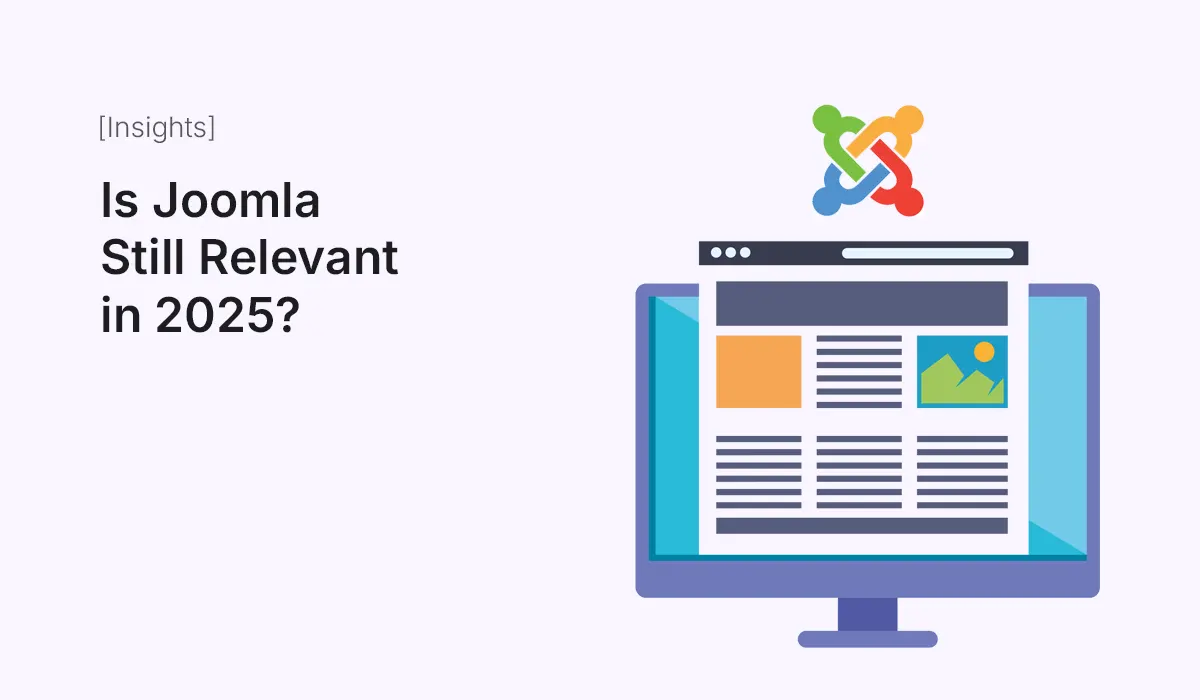Joomla has been one of the most popular content management systems (CMS) for over a decade. It has powered millions of websites ranging from personal blogs to corporate portals. But with the rapid evolution of website technologies, page builders, and other CMS platforms like WordPress and Drupal, many wonder: Is Joomla still relevant in 2025? In this article, we explore Joomla’s current position, its strengths, weaknesses, and why it may still be a smart choice for certain websites.
The Evolution of Joomla
Since its launch in 2005, Joomla has undergone significant development:
- Early Years: Gained popularity as an alternative to complex CMS options.
- Mid-2010s: Introduced Joomla 3.x with mobile responsiveness, SEO enhancements, and improved usability.
- Recent Updates: Joomla 4.x, launched in 2021, brought a modern admin interface, better performance, and stronger security features.
Joomla’s evolution shows a consistent effort to keep the platform modern, flexible, and secure.
Strengths of Joomla in 2025
Despite the competition, Joomla still has several advantages:
Flexibility and Scalability
Joomla is highly versatile. You can build blogs, e-commerce sites, corporate portals, and social networking platforms with ease. Its flexible architecture makes it suitable for small businesses and large organizations alike.
Multilingual Support
Unlike some other CMS platforms, Joomla provides built-in multilingual support without requiring additional plugins. This is particularly valuable for global websites or businesses targeting multiple regions.
Strong User Management
Joomla’s user management system is more advanced than many competitors. It allows granular access control levels, which is ideal for membership sites, community portals, or enterprise-level websites.
SEO-Friendly Features
Joomla 4 comes with built-in SEO features including SEO-friendly URLs, meta tags, sitemap support, and schema markup. With proper configuration, Joomla websites can rank highly in search engines.
Active Community and Extensions
Joomla has a dedicated community that produces thousands of extensions and templates. Whether it’s SEO, security, e-commerce, or design, there are free and premium options available.
Challenges Joomla Faces in 2025
While Joomla has many advantages, it faces some challenges compared to competitors:
- Smaller Market Share: WordPress dominates the CMS market, which means fewer themes, plugins, and third-party support compared to Joomla.
- Learning Curve: Joomla’s flexibility comes at the cost of complexity. Beginners may find it more challenging than drag-and-drop platforms.
- Extension Updates: Not all extensions are consistently updated, which can cause compatibility issues.
- Marketing Perception: Many newcomers assume Joomla is outdated, even though recent versions are modern and secure.
Understanding these challenges is important for deciding if Joomla is the right choice for your project.
Who Should Consider Joomla in 2025?
Joomla is still highly relevant for certain types of websites:
- Corporate and Enterprise Sites: Need complex user management and content control.
- Membership Portals: Require advanced user permissions and registration systems.
- Multilingual Websites: Built-in multilingual support reduces reliance on third-party plugins.
- Community and Social Platforms: Extensions like EasySocial or JomSocial allow robust social networking features.
- Developers and Agencies: Those who want full control over architecture, design, and scalability.
For simple blogs or small businesses without technical expertise, WordPress might still be easier to use. But for structured, scalable, and complex sites, Joomla remains a strong contender.
Joomla vs Competitors in 2025
| Feature | Joomla | WordPress | Drupal |
|---|---|---|---|
| Flexibility | High | Medium | Very High |
| User Management | Advanced | Basic | Advanced |
| Multilingual Support | Built-in | Plugin Required | Built-in |
| Security | Strong | Good | Very Strong |
| Learning Curve | Medium-High | Low | High |
| Community & Extensions | Large | Very Large | Moderate |
Joomla continues to strike a balance between ease of use and advanced functionality, making it relevant for medium to large-scale projects.
Future Outlook for Joomla
Joomla’s roadmap indicates continued relevance:
- Enhanced Security: Joomla 4 focuses on modern PHP compatibility and advanced security.
- Improved Performance: Faster loading times and optimized architecture.
- Better User Experience: Modernized admin panel and editor improvements.
- Expanded Extension Ecosystem: Growth in both free and premium extensions.
As long as Joomla continues to innovate, it will remain a viable CMS option in 2025 and beyond.
Conclusion
So, is Joomla still relevant in 2025? Absolutely—especially for websites that require flexibility, strong user management, multilingual support, and scalability. While it faces competition from WordPress and other CMS platforms, Joomla remains a robust and secure choice for businesses, developers, and complex websites.
If you’re planning a structured, professional, and scalable website, Joomla 4 provides modern features and powerful tools that make it as relevant today as it was a decade ago.
Thinking about your next website? Explore Joomla in 2025 and leverage its powerful CMS features to build scalable, multilingual, and professional websites with confidence.






